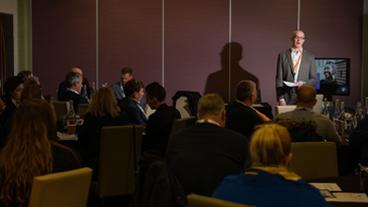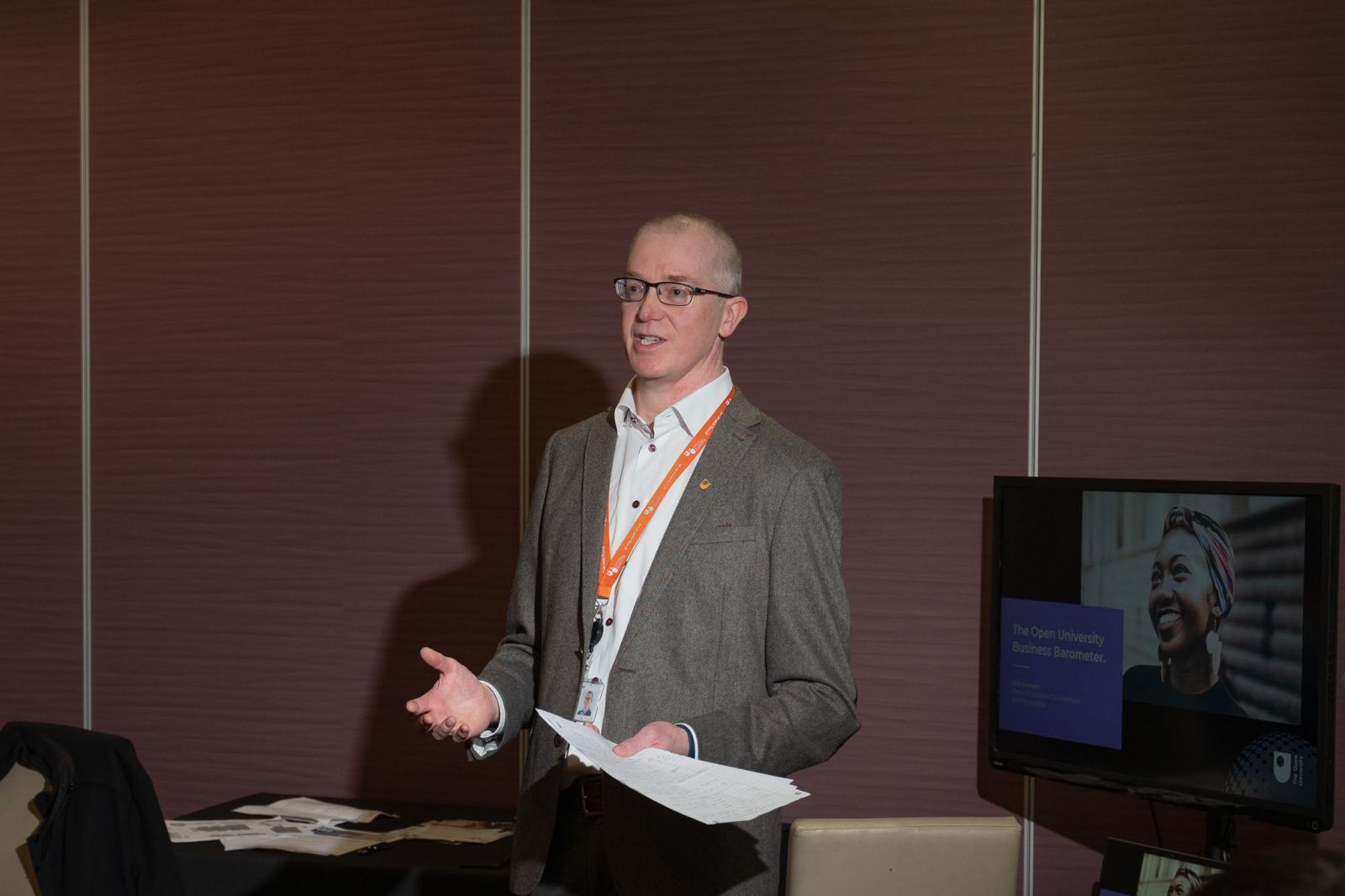You are here
- Home
- Local business leaders discuss key skills challenges
Local business leaders discuss key skills challenges

As part of its ongoing partnership with the British Chambers of Commerce, The Open University (OU) recently held a roundtable with a variety of organisations from Milton Keynes. Employers, large and small, business people and representatives from local educational institutions came together to discuss the findings of the OU’s latest and sixth Business Barometer report. The event (part of the Milton Keynes Chamber’s Business Showcase) aimed to find out what the Business Barometer means to local employers and what skills challenges they are currently facing.
Sean Rose, Head of Policy at the Milton Keynes and Northamptonshire Chambers of Commerce, opened the session, touching on the economic and recruitment difficulties experienced by local businesses in the current climate. He said it’s a really challenging time and that training is vital to achieving business growth.

We all know people are the most important part of a business.
It’s the way we grow and get new ideas.
Sean Rose
Head of Policy, the Milton Keynes and Northamptonshire Chambers of Commerce
Insights from the Business Barometer
Phil Kenmore, Director of Corporate Development & Partnerships at the OU, was next to speak. He highlighted some of the key findings from the Business Barometer report, which took in the views and experiences of 1,300 employers, across a range of sectors, regions and UK nations, in the late spring of 2022.
Some of the findings in the South of England include that:
- 68% are experiencing issues with the skills gap and skills shortages
- over a third say skills gaps are impacting on their profitability, their ability to bid for work and their ability to deliver on operational timelines
- 10% are struggling to deliver on equality, diversity and inclusion
As Phil pointed out, these findings predate the war in Ukraine and the cost of living crisis, meaning that the situation now is even more challenging. “We are all facing hikes in costs, recession and issues around retention and the labour market. Our costs are going up, no matter how big or small our businesses are and we are all facing these challenges.”
Skills shortages are also having a big impact on employees, with repercussions for mental health and wellbeing.
Plan, train and consult
Against that backdrop, what can employers do to ease the situation and overcome some of these challenges? Plan, train and consult, according to the Business Barometer.

Plan for the upskilling of your workforce post-recession.
Focus on upskilling and reskilling the staff you’ve already got and your retention will go up anyway. And consult.
Phil Kenmore
Director of Corporate Development & Partnerships, The Open University
Consulting can take many forms – events such as the Milton Keynes roundtable are a great forum for meeting with other organisations to discuss key issues, challenges, best practice and potential solutions. Partnerships and collaborations with other local employers, professional bodies, local chambers and training institutions are also important.
Shaping local skills needs
One roundtable participant talked about the value of apprenticeships, before going on to discuss LSIPs (Local Skills Improvement Plans) and how they enable employers to address specific needs and boost the provision of local skills. “It is open to everybody,” he said. “We’ve got events set up already for January and February in Northamptonshire and Milton Keynes – dedicated, facilitated workshops with real feedback.”
By pooling resources and sharing insights and best practice, employers can improve the local talent pipeline, rather than competing for skills, poaching employees from other organisations and pushing salaries up. “We need to come together and get our supply chain together,” said one representative from a local training provider.
A participant from a local educational institution said their organisation was consistently experiencing 10% vacancies across the workforce. Recruitment costs have forced the college to look at new ways to new ways to attract and incentivise talent. As Phil said: “If you want to keep people, think about education and training. It comes back to what people really want – a better opportunity for the future.”
Remote and hybrid working were mentioned repeatedly in the roundtable, but the Business Barometer found that only 12% of respondents said remote working benefitted their business. Employees want flexibility about when and where they work, so employers need to think hard about how to manage remote and hybrid work. One participant pointed out the need to achieve and agreed a better balance between flexibility for employees and the needs for the organisation.
You might also like...
Find out how we can help your organisation
Please contact us to speak to one of our business team advisors.
Not on our mailing list?
Sign up to receive regular emails that are full of advice and resources to support staff development in your organisation.


